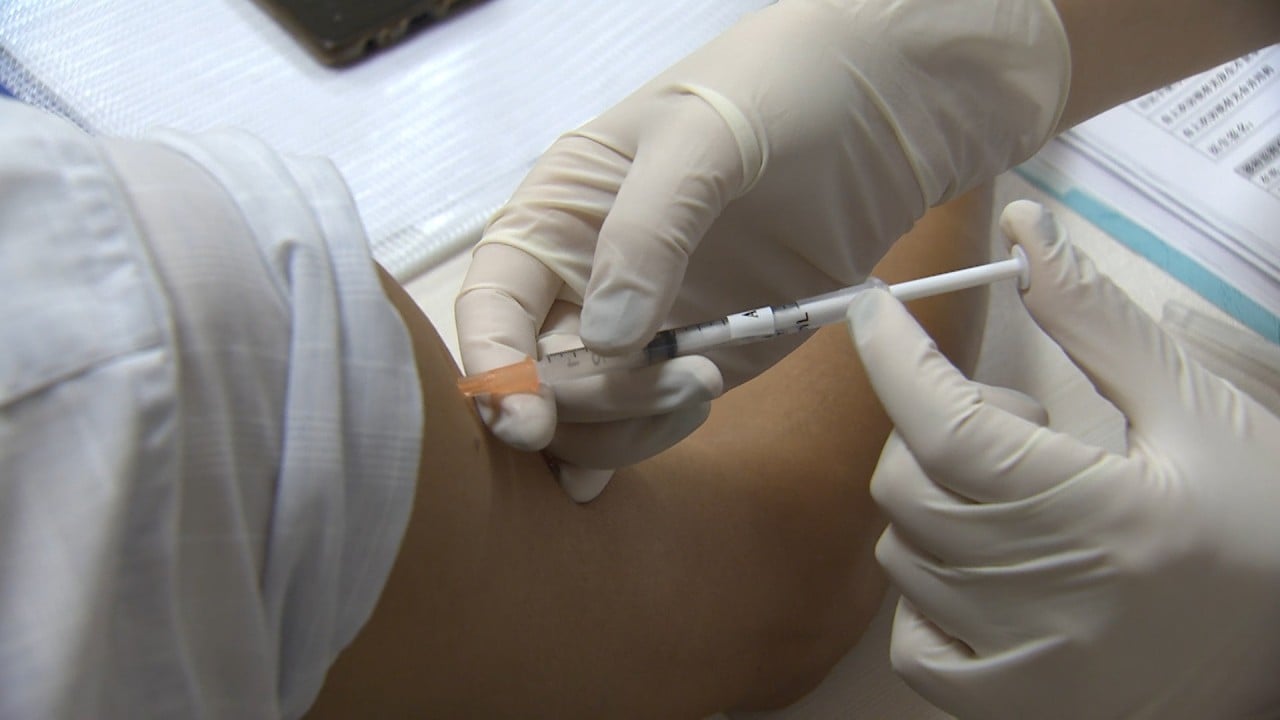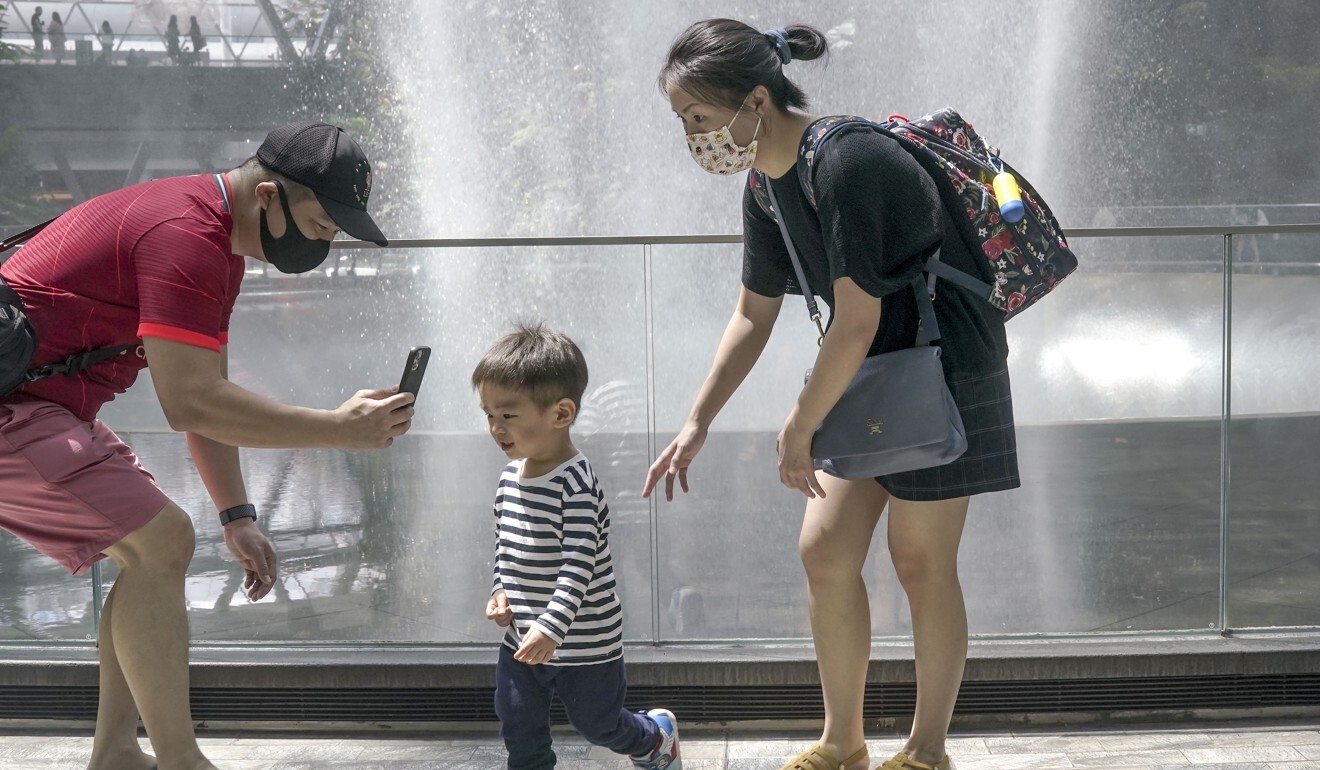
Coronavirus: Singapore study of mRNA vaccines’ effect on Delta raises hopes of shorter isolation periods
- Researchers find vaccinated people hit by breakthrough Covid-19 infections shed the virus faster than unvaccinated counterparts, raising the prospect of faster recoveries and shorter isolation periods
- While the study was not exhaustive, experts say the data reinforces the need for vaccinations alongside mask-wearing
Experts say this could mean faster recoveries and thus shorter isolation periods for those who have been vaccinated with the mRNA vaccines.
Traditional vaccines use incomplete, dead or weakened viral strains that are grown in chicken eggs. Messenger RNA (mRNA) technology works by providing human cells with the genetic instructions to make a surface protein of the coronavirus, which trains the immune system to recognise the actual virus. While studies indicate that mRNA vaccines help the body generate a strong immune response to the virus, including against some variants, experts worldwide say all vaccines continue to provide some form of protection.
Alex Cook, the vice-dean for research at the Saw Swee Hock School of Public Health, said the study showed that for vaccinated people, “their viral loads are about the same at seven days as an unvaccinated person at 14 days”. He suggested shorter isolation periods or even home-based isolation for this demographic.
David Kochman, a principal scientist at a US biotech company which he asked not to identify, said there was a strong case to be made that at “around day 10, vaccinated individuals are at low risk of transmission”.

02:38
Chinese Covid-19 vaccine developer Fosun Pharma optimistic about progress on mRNA jab
Data collected by the researchers, who work across 10 institutions such as hospitals and medical schools in Singapore, included the cycle threshold (Ct) value. This refers to how many cycles it takes for the fluorescent signal to cross the threshold before the virus is detected in patients. The Ct value is inversely proportional to the amount of virus.
It found that while Ct values were similar for vaccinated and unvaccinated people early on in the infection, at a median of Ct 19.2 and Ct 18.8 respectively, the Ct value then increased faster for those who were vaccinated, indicating that more cycles were needed to detect the virus, as the viral load was smaller.
However, the Infectious Diseases Society of America has said that given the spread of the Delta variant, societies now need to have well over 80 per cent of their populations fully vaccinated to attain herd immunity, and possibly nearer 90 per cent.
The Singapore researchers posted their paper, which has not yet been peer reviewed, in an online archive for complete but unpublished medical and health manuscripts called medRxiv on July 31. In it, they said their findings had implications for infection control policy. Researchers said this was probably the first study showing the impact of vaccination on viral loads throughout the patient’s illness.
“A shorter duration of infectivity may allow a shorter duration of isolation for vaccinated individuals,” said the paper.
What Asia’s scramble for mRNA production facilities means for manufacturing
Being able to isolate people for shorter periods of time frees up health care capacity. Taken together with other findings that those vaccinated were likely to have mild or no symptoms, and therefore be less of a burden on the healthcare system, this paves the way for societies to live with Covid-19.
“It is likely that there will be a shift towards milder disease spectrum with more widespread implementation of vaccination programmes,” wrote the researchers.
The paper has also been submitted to a scientific journal.
Singapore is aiming to have vaccinated about 80 per cent of its population by September as it transitions to a policy of treating Covid-19 as endemic, so it can fully reopen its economy. Its vaccination rate was 63 per cent as of August 2.
The Singapore paper also looked at the severity of illness and found that 28.2 per cent of those who were vaccinated did not have symptoms, while vaccinated patients who did show symptoms had roughly one fewer symptom than those who were not jabbed. Vaccinated people also had milder symptoms.
Of the 71, about 12.7 per cent had pneumonia and 2.8 per cent needed supplementary oxygen. For the 130 unvaccinated, more than half had pneumonia and one-fifth required supplementary oxygen.

Meanwhile the finding that Ct values were similar among vaccinated and unvaccinated people infected with the Delta variant corroborated a study by the United States Centres for Disease Control and Prevention (CDC). Last week, the CDC had cited these findings to reverse mask guidelines, again recommending that those who had taken jabs should wear masks indoors.
Experts agreed with this recommendation, saying that the data reinforces the need for vaccinations alongside mask-wearing.
Why are coronavirus vaccines – a success story – viewed so negatively?
“At least countries should vaccinate as many people as possible and wear a mask. Modelling suggests we may make things worse if we don’t continue to wear masks,” said Jerome Kim, the director of the International Vaccine Institute.
Researchers did note that their study had several limitations. It did not compare breakthrough infections with vaccinated people who were similarly exposed to Covid-19 but were not infected. They also used Ct values as a surrogate measure of viral load and shedding, rather than studying live samples of the virus itself.
Ben Cowling, a professor of epidemiology at the University of Hong Kong’s School of Public Health, said further study comparing vaccinated people who were infected and those who weren’t would be insightful. If it showed that vaccination reduces the risk of infection substantially despite not reducing Ct values, “vaccination would still substantially reduce transmission”, he explained.

